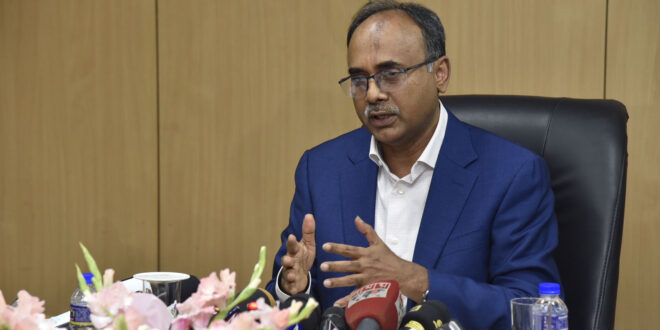Bangladesh Bank Governor Abdur Rouf Talukder considered Moody’s recent downgrade on some local banks as a geopolitical move rather than economic indicator.
The central bank governor was responding to a question during the launch of the half-yearly monetary policy statement (MPS) starting next month.
He said the international credit rating agency initially downgraded Bangladesh in 2012 when the country’s reserves were $10 billion and the size of per capita income, exports and imports were comparatively lower.
However, the central bank governor said that the country has made significant progress in all macroeconomic indicators over the years, as the reserves rose to $48 billion, per capita income was close to $3,000 and exports and imports increased significantly.
Surprisingly, it downgraded the banking system, even though it is now much stronger in all parameters compared to 2012, he remarked.
“I think it is geopolitical, it is not done purely considering economic factors. We don’t think it will hamper remittance inflow and FDI because potential oversea investors have all the data about our economy,” the governor said.
Earlier, on May 31, Moody’s Investors Service downgraded the ratings of six local banks – BRAC Bank, The City Bank, Dutch-Bangla Bank Limited, Eastern Bank, NCC Bank and The Premier Bank. Besides, it revised the outlook on Bangladesh’s banking system from stable to negative in a report published on March 1.
Regarding the increasing injection of high-powered money or newly circulated money, the governor said that the liquidity situation in the banking sector is under stress due to various factors in the economy, where the money base as a percentage of GDP is as low as 40%.
Commercial banks in Bangladesh have so far purchased $13 billion from the Bangladesh Bank in the current fiscal year (FY23), spending around Tk124,000 crore, which accounts for 6% of the country’s money base, according to the governor.
The governor said that they have implemented several measures to rapidly change the situation. There is a total of $50.2 billion in approved aid that remains in the pipeline due to the country’s inability to spend it.
“If we can spend one-fourth [$12.5 billion] of the pipelined aid this year, it will have a positive impact on the financial account,” he said.
Besides, there are signs of a declining rate in the US Fed. If this occurs in the coming months, portfolio investors will return to the economy. The country must be cautious and ensure the effective implementation of ongoing projects.
“If we can do this accordingly, the financial account will turn into a positive regime again,” the governor added.
(DT)
 Welcome to Business Outlook
Welcome to Business Outlook




